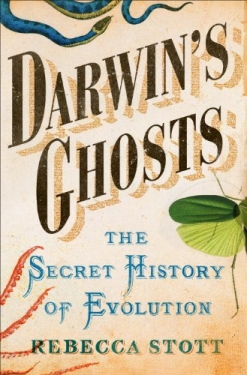- HOME
- INTRO TO THE FORUM
- USE AND MISUSE
- BADLY WRITTEN, BADLY SPOKEN
- GETTING
TO KNOW ENGLISH - PREPARING FOR ENGLISH PROFICIENCY TESTS
- GOING DEEPER INTO ENGLISH
- YOU ASKED ME THIS QUESTION
- ADVOCACIES
- EDUCATION AND TEACHING FORUM
- ADVICE AND DISSENT
- MY MEDIA ENGLISH WATCH
- STUDENTS' SOUNDING BOARD
- LANGUAGE HUMOR AT ITS FINEST
- THE LOUNGE
- NOTABLE WORKS BY OUR VERY OWN
- ESSAYS BY JOSE CARILLO
- Long Noun Forms Make Sentences Exasperatingly Difficult To Grasp
- Good Conversationalists Phrase Their Tag Questions With Finesse
- The Pronoun “None” Can Mean Either “Not One” Or “Not Any”
- A Rather Curious State Of Affairs In The Grammar Of “Do”-Questions
- Why I Consistently Use The Serial Comma
- Misuse Of “Lie” And “Lay” Punctures Many Writers’ Command Of English
- ABOUT JOSE CARILLO
- READINGS ABOUT LANGUAGE
- TIME OUT FROM ENGLISH GRAMMAR
- NEWS AND COMMENTARY
- BOOKSHOP
- ARCHIVES
Click here to recommend us!
TIME OUT FROM ENGLISH GRAMMAR
This section features wide-ranging, thought-provoking articles in English on any subject under the sun. Its objective is to present new, mind-changing ideas as well as to show to serious students of English how the various tools of the language can be felicitously harnessed to report a momentous or life-changing finding or event, to espouse or oppose an idea, or to express a deeply felt view about the world around us.
The outstanding English-language expositions to be featured here will mostly be presented through links to the websites that carry them. To put a particular work in better context, links to critiques, biographical sketches, and various other material about the author and his or her works will usually be also provided.
Accusations of plagiarism bedeviled Darwin’s book on evolution
Apart from being met with outrage and accusations of heresy upon the publication of his revolutionary book On the Origin of Species in 1859, Charles Darwin had to contend with charges of plagiarism for failing to acknowledge other thinkers who had contributed to the development of his theory of natural selection. How he dealt with the explosive situation is chronicled by Rebecca Stott in Darwin’s Ghosts: The Secret History of Evolution (Spiegel & Grau, 396 pages), a fascinating account of the many individuals over the centuries who had dared to challenge a worldview in which everything was presumed to have been created perfectly by God.

Stott recounts that in Darwin’s notes for the controversial book, he had actually made a list of the predecessors whose contributions to his theory of evolution he planned to acknowledge, but having sat on his book for over 20 years before finally deciding to publish it, he overlooked inclusion of that list altogether. To make amends for the oversight, Darwin appended to the first American edition of the Origin of the Species a “Historical Sketch” crediting 18 others, including the physicist and theologian Baden Powell, who had violently accused him of taking credit for a theory developed by others. In subsequent editions, Darwin expanded the list to over 30 contributors to the theory—some of them not even worthy of the credit.
Each chapter of Darwin’s Ghosts makes a fascinating account of each of the many major contributors to the theory of natural selection, from Aristotle to the Arab writer Al-Jahiz to Leonardo da Vinci to Denis Diderot to Erasmus Darwin and onwards to the young naturalist Alfred Russel Wallace, who made a parallel discovery of the mechanism of natural selection in the Malay Archipelago almost at the same time as Darwin. Indeed, Stott argues that evolution wasn’t Darwin’s singlehanded discovery but an idea that emerged over the centuries, an idea “advanced by daring individuals across the globe who had the imagination to speculate on nature’s extraordinary ways, and who had the courage to articulate such speculations at a time when to do so was often considered heresy.”
Read Randall Mayes’s “Was Charles Darwin a Plagiarist?” in Science20.com now!
ABOUT THE AUTHOR:
Rebecca Stott is a professor of English literature and creative writing at the University of East Anglia and an affiliated scholar at the department of the history and philosophy of science at Cambridge University. She is the author of several books, including Darwin and the Barnacle and the novels Ghostwalk and The Coral Thief.
ANOTHER INTERESTING READING:
In “A Brief History of Money,” an article that came out in the June 2012 issue of Spectrum.IEEE.org, James Surowiecki chronicles the history of paper money beginning in the 13th century, when the Chinese emperor Kublai Khan decreed that henceforth money—then in the form of regionally issued coins—would take the form of paper to encourage trade in the various regions of the Chinese empire. Surowiecki says that Kublai Khan was ahead of his time: “He recognized that what matters about money is not what it looks like, or even what it’s backed by, but whether people believe in it enough to use it. Today, that concept is the foundation of all modern monetary systems, which are built on nothing more than governments’ support of and people’s faith in them.”
Read James Surowiecki’s “A Brief History of Money” in the Spectrum.IEEE.org website now!






